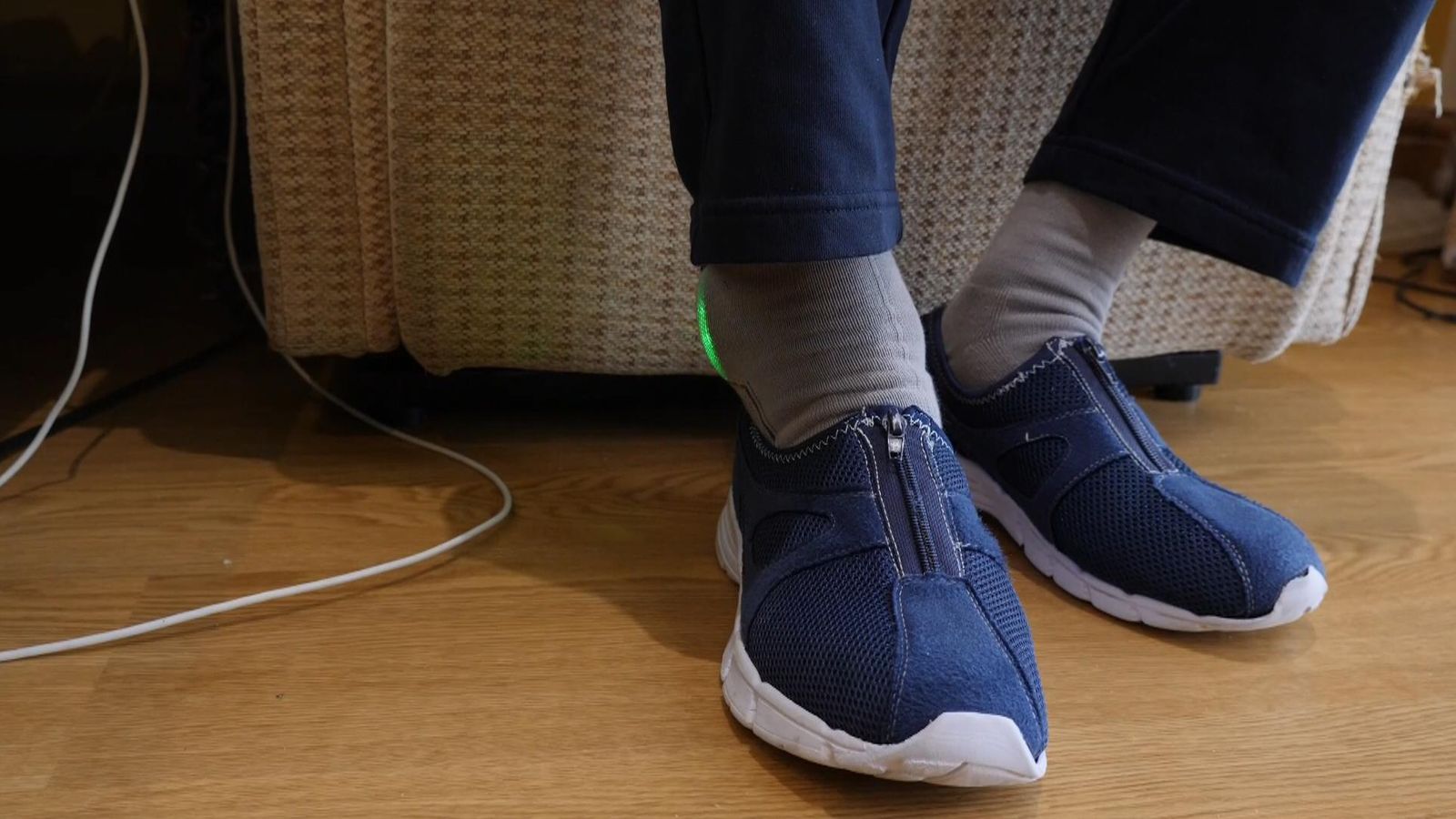Researchers at the University of Exeter are to begin a new study into the effectiveness of high-tech socks that could prevent falls and illness in people living with dementia.
The so-called Smart Socks invention automatically collects data from sensors in the sock material – before automatically sending it via WiFi to an app used by a carer.
The information includes heart rate, temperature, sweat levels and motion.
Its co-creator Dr Zeke Steer told Sky News it allows carers to monitor stats without always being in the room.
“What we’re doing with the Smart Socks is detecting signs of distress that they might not be able to articulate due to conditions like dementia,” he said.
“It’s really important we detect this early so that the carer can intervene and support that person.”
Dr Steer said he hopes the invention could be used by not just people with dementia: “I want to see this product used in people’s homes.
Intermittent fasting could improve memory of people with Alzheimer’s
Donanemab found to slow Alzheimer’s and hailed a ‘turning point in fight against disease’
New Alzheimer’s drugs offer hope for bleak diagnosis but remain out of reach in UK
“I want as many people to benefit from it not just within dementia but potentially other conditions too like autism and learning disabilities – conditions that affect people’s ability to communicate effectively.”
The creators say current physiological monitors are frequently worn on wrist straps, which can stigmatise or even cause more stress, and are frequently removed by patients.
Early warning system can prevent falls
The Garden House Care Home in Bristol has already been involved with trialling the socks.
Fran Ashby, the care home manager, said: “It can certainly prevent falls, because it will provide us with the early warning system for staff to give intervention.
“It could prevent stress between two sets of residents, as well as all the usual signs of infection, pain and physical things.”
The latest research project led by Dr Byron Creese, senior lecturer in neuroscience at the University of Exeter, will see the socks tested at a network of care homes in the South West.
He said: “For us it’s all about accurately measuring agitation and distress in people with dementia, that’s a real challenge as when dementia gets more severe communication gets more difficult.
“It’s time to do the larger study of these socks in nursing homes. So we are scaling things up. We’re going to be trialling these socks on 30 people living in homes.”
Be the first to get Breaking News
Install the Sky News app for free
Technology helps carers in homes
In a second, separate study, Milbotix, the creators of Smart Socks, is working with a team at the UK Dementia Research Institute Care Research & Technology Centre at Imperial College London.
Dr Shlomi Haar, the Emerging Leader there, told Sky News that technology is increasingly helping carers in the home setting.
He said: “So the importance of using new tech for dementia in the home is that we cannot have a carer, a professional caregiver, in each and every household with people with dementia.
“Their partners are doing what they can but they are limited with capacity and we need to support them. Technology is the way to support the needs.
“It is the way to enable better care in the home, is the way to enable better medicines, is better information for the GP or the consultants that see the patient beyond this objective report of what are the changes in the condition of their behaviour, in their functional and cognitive decline. It would enable the clinician to make better decisions.”









